China's web users say this time, it's #TheMostSeriousSmog
- Published
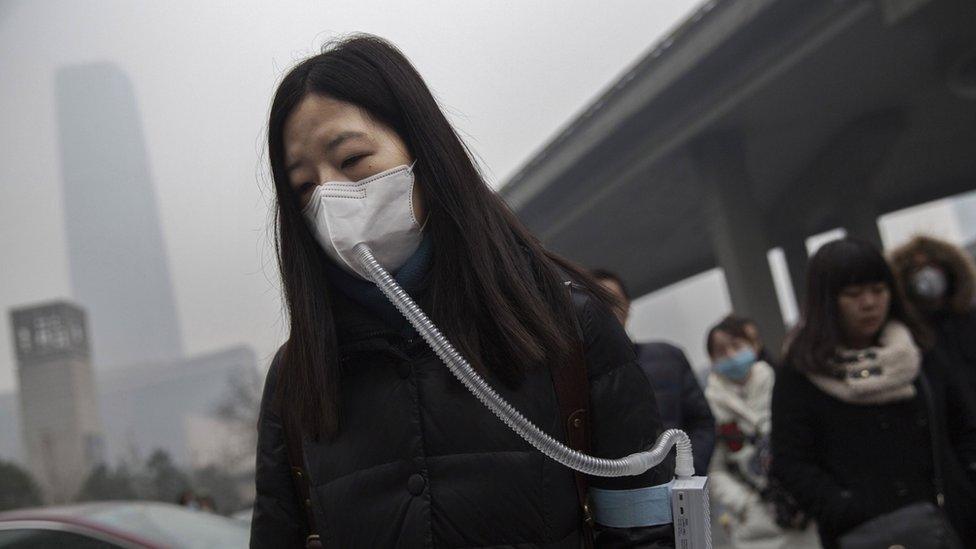
Chinese state and social media call for urgent action on air pollution
The chronic air pollution currently afflicting northern China is being described by social media users as the worst they have experienced.
Red alerts have been issued, highlighting the severity of the problem, and traditional media - which often shy away from reporting about the recurring scourge - say it needs urgent action.
State media have given unusual prominence to the danger, carrying moving stories about how children's lives are being affected.
#TheMostSeriousSmog
Hundreds of thousands of Weibo users are venting their frustrations under the hashtag #TheMostSeriousSmog, which has consistently been one of the most used on the Sina Weibo microblog since northern cities issued red alerts over pollution on 15 December.
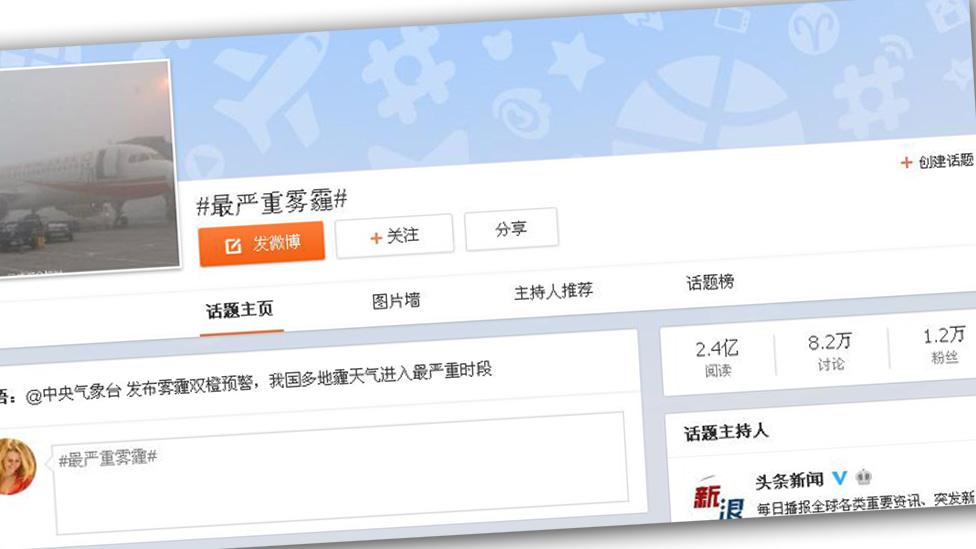
For the past two weeks, #TheMostSeriousSmog has been commonly used
Users are posting air quality maps, voicing their fears about health problems and their overriding feelings of hopelessness.
"Yangxiaoqia" calls it a "tragedy", saying the problem have reached "such a serious stage, and there are no solutions to governing and solving it".
"Woyouyige Cuisansui" says she believes the government "cannot deal with the deadly haze".
Effect on children
In recent days, newspapers have emphasised the effect on children.
The state-run Global Times highlights the "disruption to normal life", with parents forced to bring their children to work because schools are closed.
In Beijing, the Municipal Education Bureau has required teachers to live-stream classes "to keep students from falling behind". Global Times and Hong Kong's South China Morning Post described teachers in the north conducting classes via smartphone from empty classrooms.
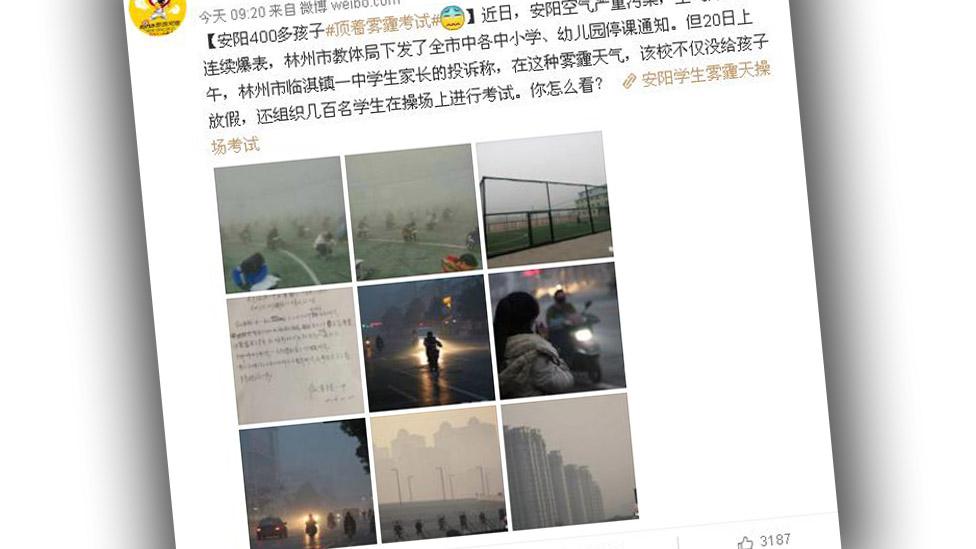
Images of students sitting an exam in the smog startled online users
On social media, users were particularly shocked at the decision by a school in central Henan province to stay open and make students sit an exam, while surrounded by haze.
Tens of thousands of users posted about it using #TheUltimateTestAgainstSmog hashtag. The school's headmaster was later suspended.
"Sina Henan" shared pictures of the incident on Sina Weibo, prompting around 6,000 responses.
"Hongxiu Tianluanv" said the pictures were "crazy. The principal's head is obviously full of haze".
"Yisheng Desuming" called the headmaster "sick". "To have no regard whatsoever for [the children's] health."
Earlier censorship
While state media have upped their coverage of the pollution problem, mindful of the widespread public dissatisfaction and the disruption to daily life, they have previously been wary of carrying reports suggesting that the pollution is a government failing.
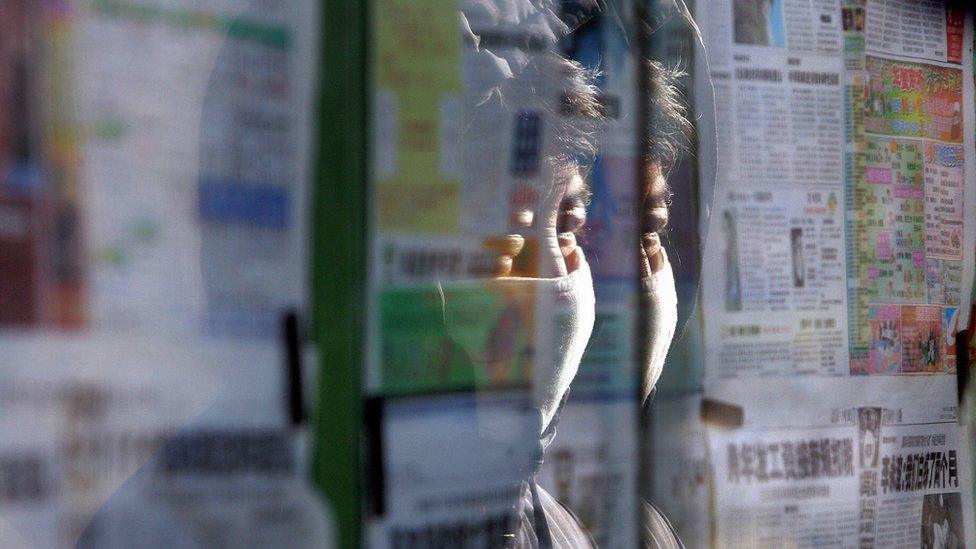
Failures to tackle smog are increasingly becoming a focus of Chinese newspapers
In February 2015, the central publicity department ordered that a critical documentary, Under The Dome, be removed from the internet, and comments related to it were widely censored.
The fact that the documentary was self-made by a state media journalist - as well as the censorship - attracted international attention.
Urgency
Improving air quality is a key Communist Party initiative under President Xi Jinping, and the government aims by 2020 to have drastically reduced pollution, aiming to have clean air conditions for 80% of the year.
But it is uncertain whether the targets can be met given that this year, cities nationwide have issued more red alerts than ever before.
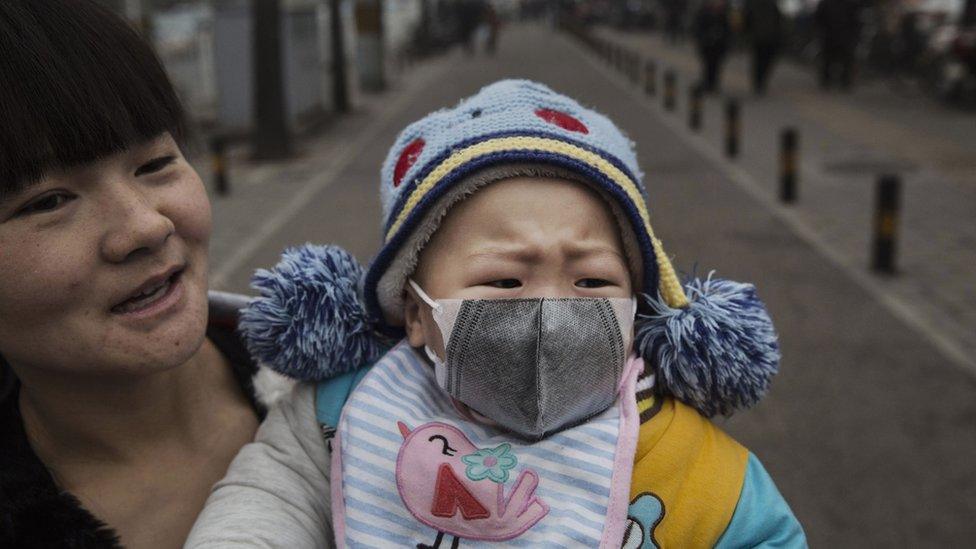
Beijing issued its first red alert on air pollution last year
On 15 December, official media reported that 23 cities in northern China had issued red alerts.
Beijing issued its first red alert in 2015, along with the city of Tianjin and some 10 cities in northern Henan and Hebei provinces.
The four-tier system (red, orange, yellow and blue) emergency response system was introduced in 2013. During an alert, there are curbs on vehicle use and factories and schools are advised to suspend classes.
BBC Monitoring reports and analyses news from TV, radio, web and print media around the world. You can follow BBC Monitoring on Twitter, external and Facebook, external.